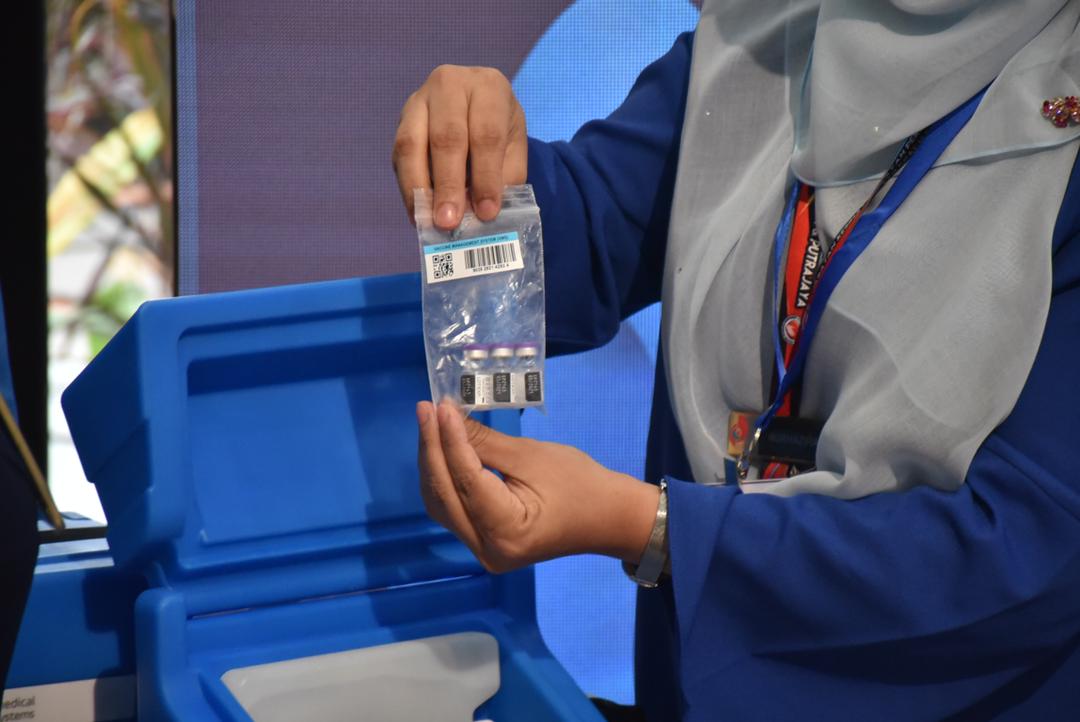KUALA LUMPUR, March 22 — The government will no longer reserve the second Covid-19 vaccine dose from this week for those who received the first dose pending new deliveries, Khairy Jamaluddin said today.
The Vaccine Minister said 428,710 doses (including the second dose) have been administered to frontline workers nationwide as of March 22, out of 847,630 doses delivered, based on the initial one dose, one reserve policy.
“Starting this week, we’ll give vaccines on a rolling basis, so we won’t wait and reserve one dose,” Khairy told a virtual press conference.
“Doses will be given from available stocks without reserving the second dose.”
He tweeted separately that the second dose of the Pfizer-BioNTech vaccine would still be administered in 21 days from the first dose, as per the recommended dosing interval.
Khairy explained that the initial one dose, one reserve policy was implemented to mitigate against delivery delays, but the Malaysian government is now confident with the delivery schedule for the Pfizer-BioNTech vaccine that US pharmaceutical company Pfizer has honoured.
“We will roll the doses, so we don’t have to wait for a new delivery in order to release the doses. With that, we’ll be able to finish Phase One earlier and we can start Phase Two earlier as well,” he added, referring to the first two phases of the national Covid-19 vaccination programme for frontliners and high-risk groups.
Khairy also said the government will receive the delivery schedule for AstraZeneca-Oxford University’s Covid-19 vaccine in a week and that Malaysia would soon issue a position on the “halal” status of the vaccine after examining its components.
UK-Swedish pharmaceutical company AstraZeneca said in a statement yesterday that its coronavirus vaccine did not use pork-derived or other animal products throughout the production process, after the Indonesia Ulema Council described AstraZeneca’s vaccine as “haram” because of the use of “trypsin from the pork pancreas” in manufacturing. Nonetheless, the council still approved the AstraZeneca vaccine for use in light of the pandemic.
Khairy added today that some states have administered coronavirus vaccines to non-health care frontliners after giving the first dose to all registered health care workers in the first phase of the national inoculation drive, since Malaysia received 100,000 finished Sinovac doses on March 15.
Terengganu administered 1,651 doses (first dose) yesterday, even though the east coast state completed administering the first dose to 15,726 frontline workers by March 17.
The top five doses administered by state are in Selangor (53,935), Perak (49,518), Sarawak (43,007), Sabah (41,058), and Kuala Lumpur (36,316). The top five vaccine doses administered by district are in Kuala Lumpur (36,316); Kinta, Perak (17,056); Petaling, Selangor (15,700); Kuantan, Pahang (13,155), and Penang’s northeast district (13,043).
Malaysia is scheduled to receive 124,020 Pfizer and 100,000 Sinovac doses today, plus another 125,190 Pfizer doses on March 29. This means a total 1,000,350 Pfizer and 200,000 finished Sinovac doses will be delivered to Malaysia by March 29.
Opposition Leader Anwar Ibrahim previously suggested vaccinating more people with the first dose of the Covid-19 vaccine, instead of reserving the second dose, like what the UK is doing. Health director-general Dr Noor Hisham Abdullah then said the three-week dosing interval for the Pfizer-BioNTech vaccine should be maintained.
US leading infectious disease expert Dr Anthony Fauci said last month that Covid-19 vaccines should be administered as soon as they are delivered, while ensuring that people get the second dose, as vaccines are “better in somebody’s arm than in a freezer”.







